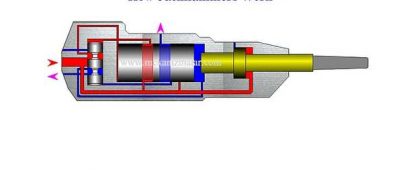Searching for a business database from a specific region is better to utilize, such as data from a regional provider, because it can provide more reliable data.
Once you want companies’ details like financial statements, opponents’ lists, workers’ lists, and contacts, it is better to utilize the digital directory, which is always updated, having constant access to accurate data. Small industries operate on databases.
These repositories of orderly data can stock virtually every type of data possible, and they can form that data and give it to you. Business databases enable small-business holders to track and organize their clients, employees, and inventory.
With lots of data on your inventory, staff, or customers, you may get an advantage from more productive data management equipment. Here’s how you can find a business database:
Customer Relationship Management
A CRM or customer relationship management (CRM) database can enable a small industry to regulate the lifeblood of its industry – its clients. A CRM database regulates all the data a firm has about its opportunities, leads, contacts, and accounts.
A single client’s data may include his phone number, details of client service calls, the items he returned, a list of his most-liked items, the full amount of his presents for the last year, the amount, and the date of his last order, and more.
Business databases can also be utilized to regulate promotions and marketing, prepare shipping labels, and export email addresses.
Effective CRM databases are usually influential enough to process and store everything, from accounts, interaction history, and customer contact details, to new business opportunities, leads, and prospects. Also, some CRM systems can even enable you to track and run trade movements, such as email newsletters.
Inventory Tracking Database
An inventory tracking database can explain to a commercial industry how much inventory is on store shelves, in a storage room, and in a win warehouse.
Integrated scanners and barcodes form an extensive tracking system, monitoring items as they shift from one spot to another and editing the database, so there is no need to measure the inventory in a warehouse.
A database can also warn you when supplies and products do not have much of it left, so you can purchase more before you run out of a crucial product.
By utilizing an inventory tracking database, particularly alongside barcode scanning and electronic data interchange, you can minimize lost sales and prevent risks while maximizing your chances for development.
![]()
Scheduling and Payroll Database
Utilizing a database to regulate employee data can facilitate scheduling and prevent payroll mistakes. A worker database includes such areas as accrued vacation time, year-to-date income, tax withholding rates, salary or commission, and hourly wage.
Other worker advantages, such as retirement account contributions and health insurance, can also be listed in a database.
More than two databases can be associated with each other to build an association between a deal representative in the personnel database and the reports in the CRM database she is accountable for.
Business Data Analysis
The strong reporting traits of databases make them beneficial resources for predicting future trends and analyzing data.
For instance, a productivity record might prove that productivity delays so much on the Friday before a 3 day holiday that you probably as well just allow the faculty to go earlier on those days.
Deal publicity effectiveness data might prove that deals of specific items are boosted after email publicity while deals of other items are boosted after in-store advertising. Client manners are predictable, and a database can enable you to anticipate and achieve your clients’ requirements.
Conclusion
Looking for a database that is useful for the firm’s development is a difficult job to conduct. The businesses require the database to attain their target audience or get a concept of their target market.
Databases are utilized for many reasons where data gets processed and used to predict, inform, qualify and quantify, act and respond to modifications in the settings, predict modifications and events, take roles, and so on.
If we considerably classify these, it is for archiving and processing trades of all types and all kinds of information and measured variables regarding perceptions, performance, operations, history of contacts, and contact details- like CRM’s and such.



